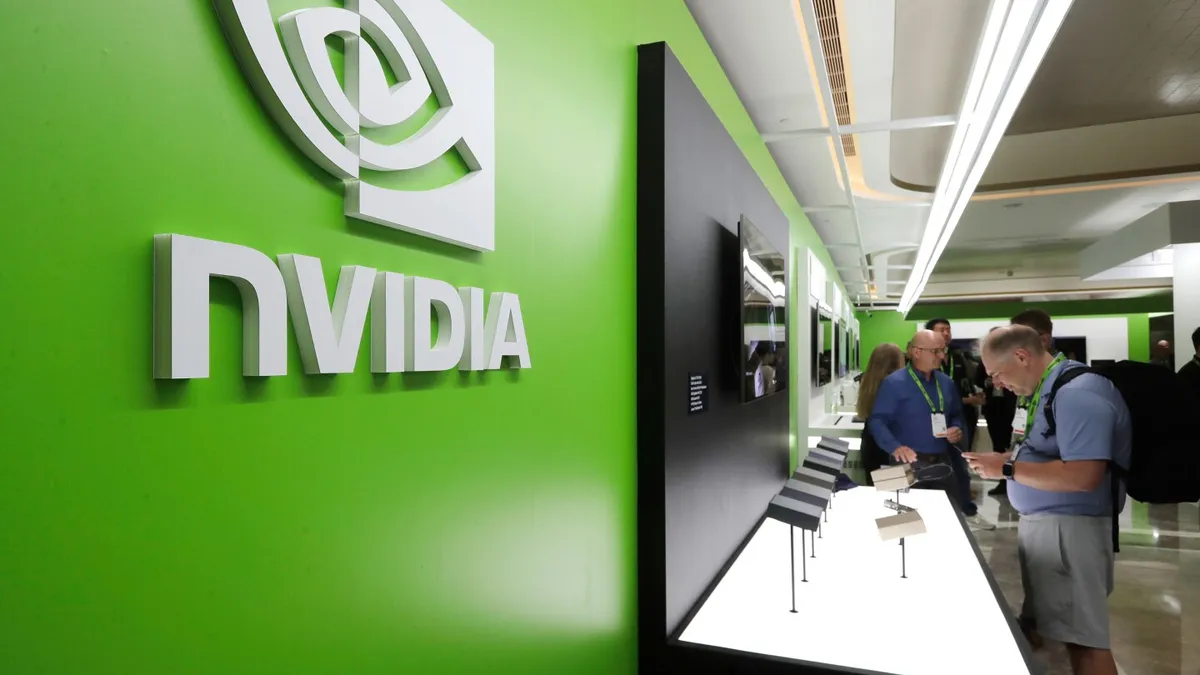
Nvidia has achieved a remarkable milestone, becoming the first company in history to reach a market valuation of $5 trillion. This achievement comes just three months after the Silicon Valley chipmaker became the first to surpass the $4 trillion mark. The rapid ascent of Nvidia's stock price underscores the transformative impact of the current artificial intelligence (AI) boom, which is widely regarded as the most significant shift in technology since the launch of the first iPhone by Apple co-founder Steve Jobs 18 years ago.
Following the success of the iPhone, Apple became the first publicly traded company to achieve valuations of $1 trillion, $2 trillion, and eventually, $3 trillion. However, as Nvidia's market cap soars, there are growing concerns about the potential for an AI bubble. Recently, officials at the Bank of England highlighted the risks associated with inflated tech stock prices driven by the AI frenzy, while the head of the International Monetary Fund echoed similar warnings.
The primary driver behind Nvidia's skyrocketing stock price is the insatiable demand for its advanced chipsets, particularly the graphics processing units (GPUs) used in powering AI systems. On Wednesday, Nvidia shares closed at $207.04, with 24.3 billion shares outstanding, bringing its market capitalization to an impressive $5.03 trillion. To put this into perspective, Nvidia's valuation surpasses the GDP of major economies such as India, Japan, and the United Kingdom, according to data from the International Monetary Fund.
Nvidia has carved out a significant lead in the tech industry by adapting its GPUs from gaming applications to essential tools for training powerful AI systems, like those behind ChatGPT and various image generators. As AI chatbots gain popularity, demand for Nvidia's chips has surged, prompting tech companies to scramble for the necessary components to build and operate these technologies.
Nvidia's CEO, Jensen Huang, has attempted to alleviate concerns about a potential market crash, asserting that the generative AI chatbots, which were once merely "interesting," are now becoming invaluable and profitable. This week, Huang is heading to South Korea for the Asia-Pacific Economic Cooperation (APEC) summit, where leaders from significant Pacific Rim economies, including the United States, China, and Japan, are gathering to discuss free trade, amidst challenges such as U.S. tariffs on technology.
On Tuesday, Huang revealed that Nvidia has secured $500 billion in chip orders. The company also announced a partnership with Uber to develop robotaxis and a significant $1 billion investment in Nokia, aiming to collaborate on 6G technology. In a further demonstration of its commitment to AI advancements, Nvidia is teaming up with the Department of Energy to establish seven new AI supercomputers.
Last month, Nvidia disclosed plans to invest $100 billion in OpenAI, a partnership designed to expand its AI capabilities by adding at least 10 gigawatts of Nvidia AI data centers, which will enhance the computing power for the owner of the ChatGPT chatbot. Additionally, discussions are ongoing regarding a new computer chip designed for China, with Huang mentioning that he would address Nvidia’s chips with former President Trump during the APEC event.
In a notable move, Trump announced a deal allowing chipmakers Nvidia and AMD to lift export controls on advanced chip sales to China in exchange for a 15% revenue cut. This agreement has raised eyebrows among national security experts, who express concerns about these advanced chips potentially being used by Chinese military and intelligence services. In the same month, Trump also revealed that the U.S. government had acquired a 10 percent stake in Intel, valued at approximately $11 billion.
Nvidia's unprecedented rise to a $5 trillion valuation highlights not only its leadership in the tech industry but also the significant shifts occurring due to the AI revolution. As the company continues to innovate and expand its partnerships, the world will be watching closely to see how this rapidly evolving landscape unfolds.